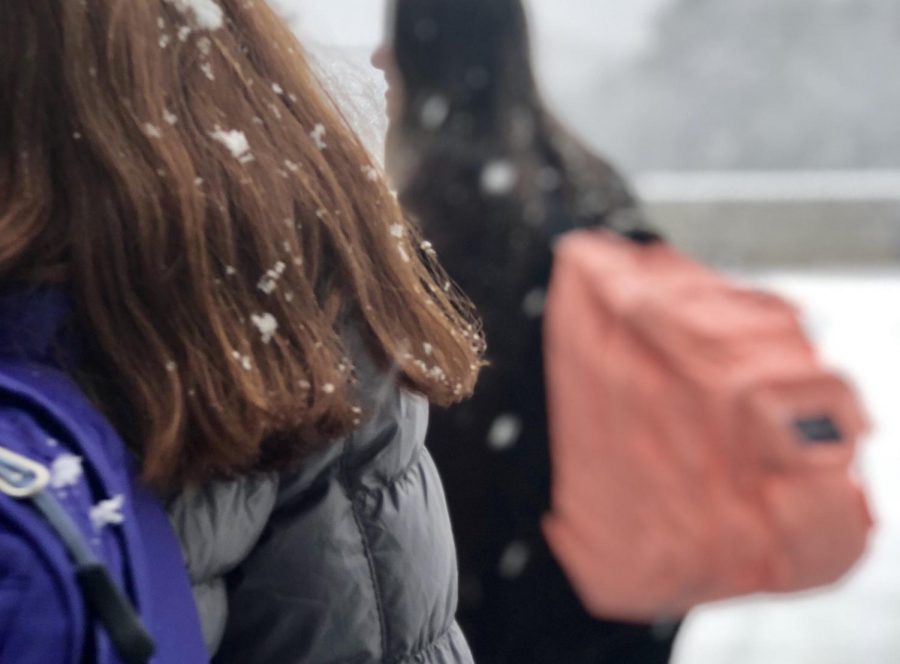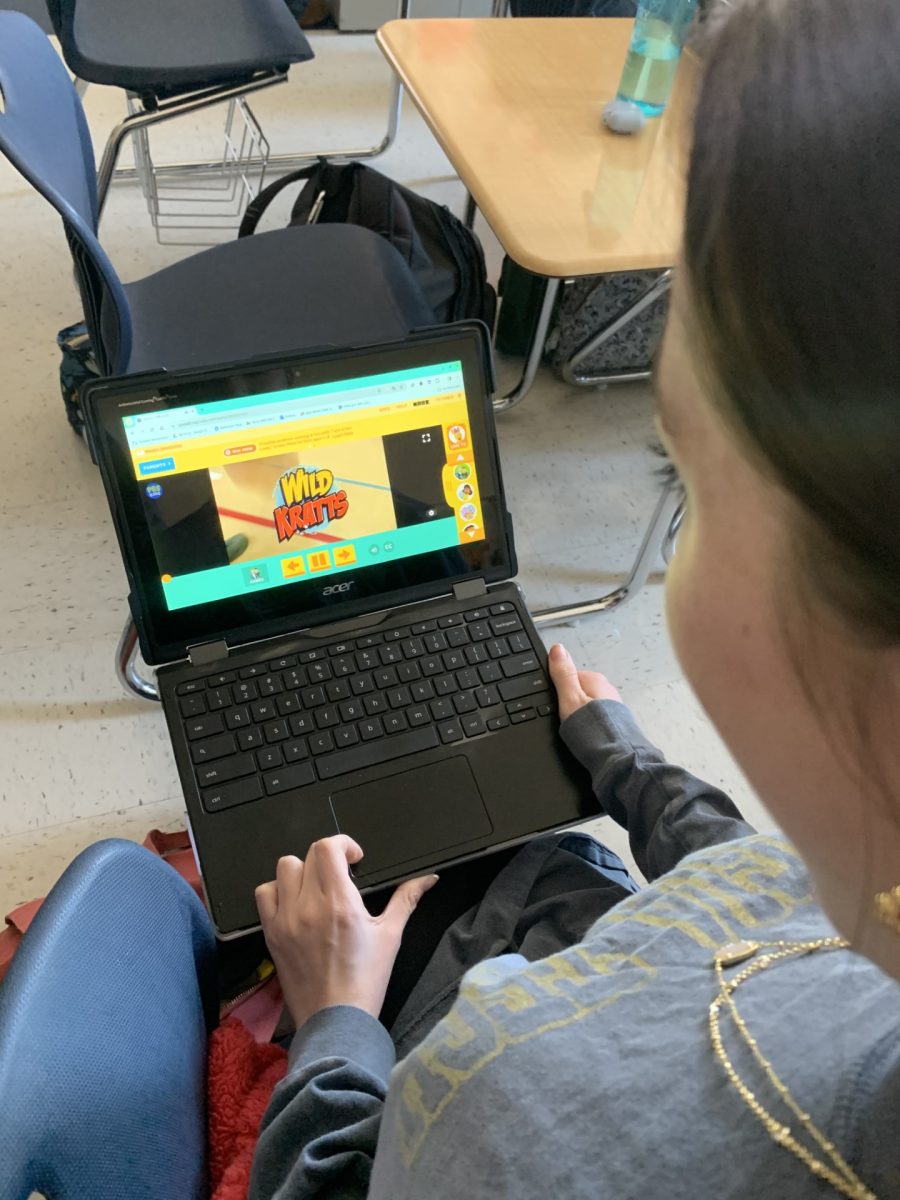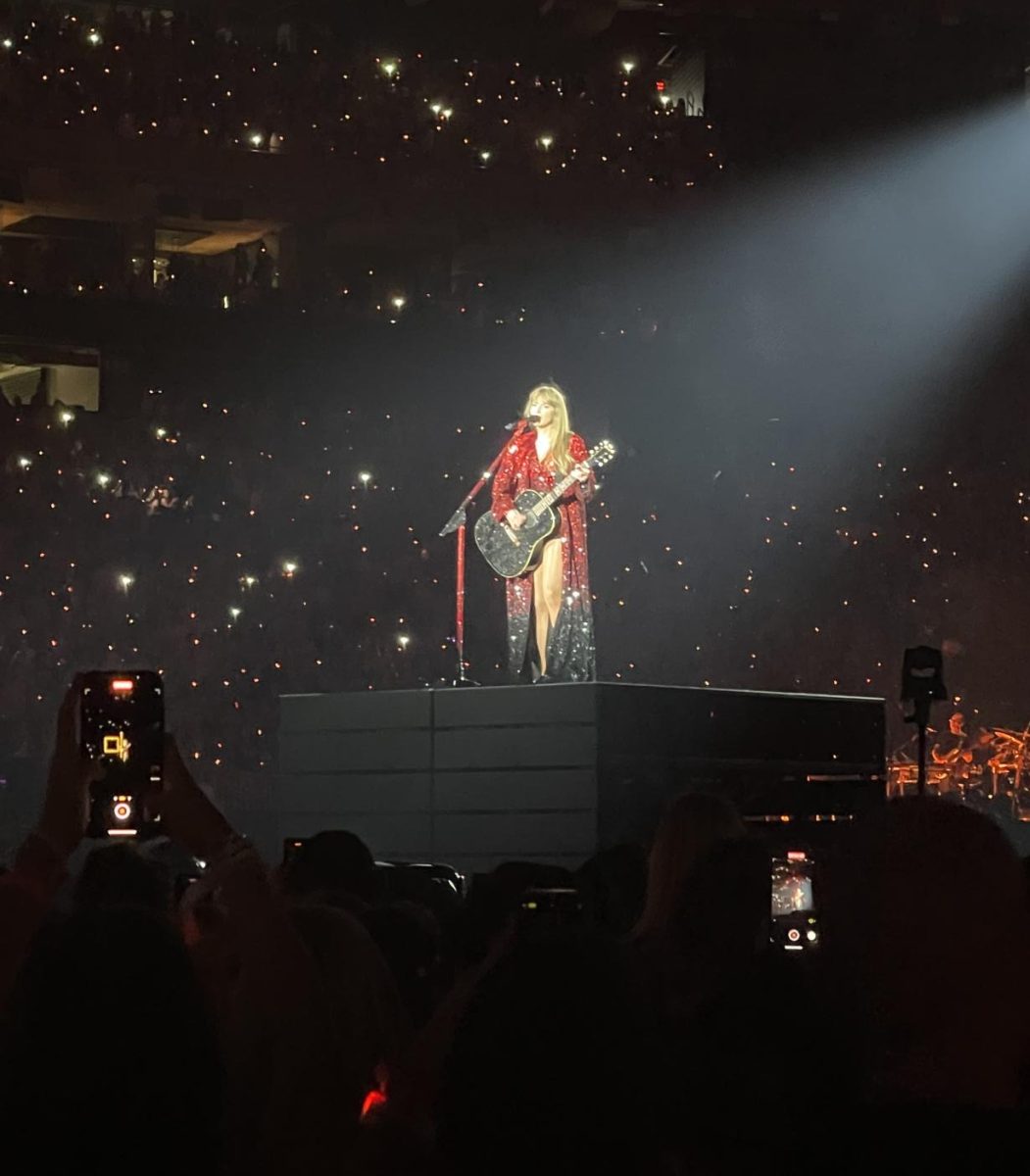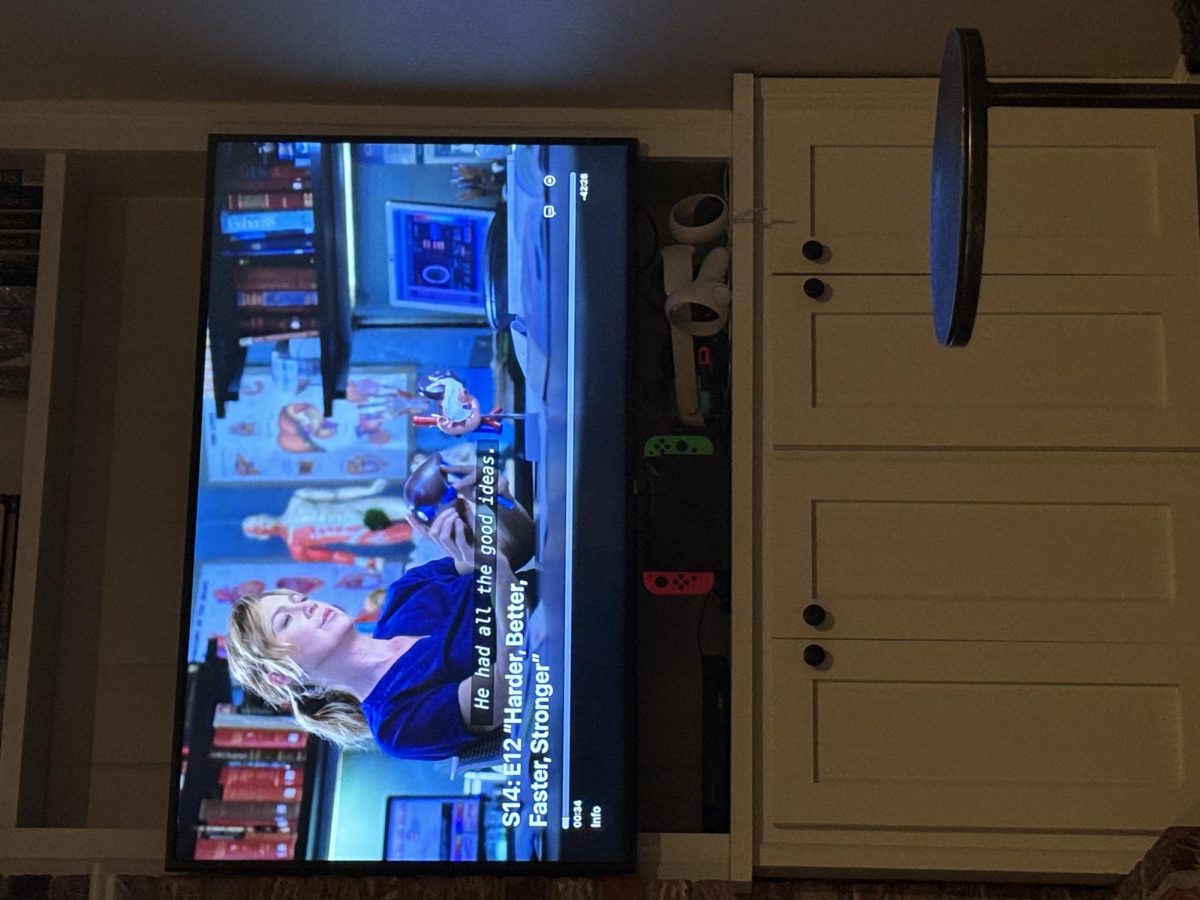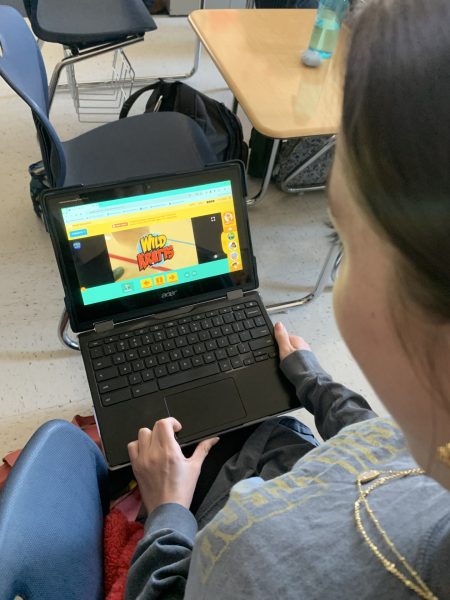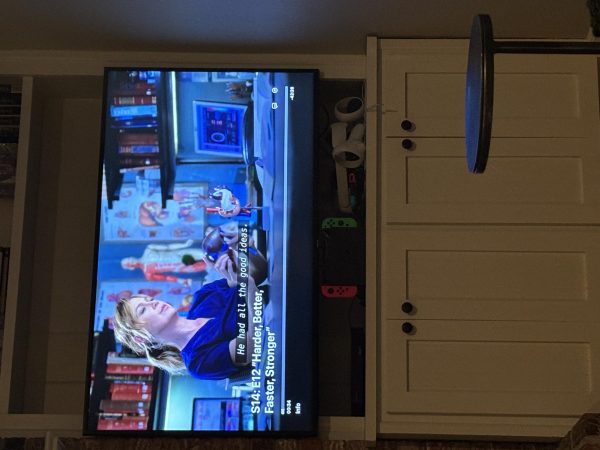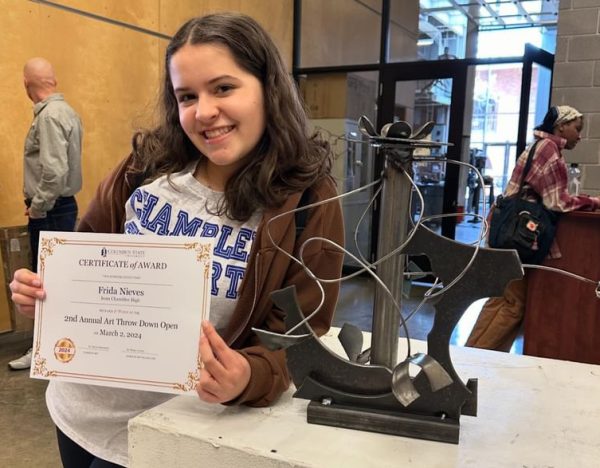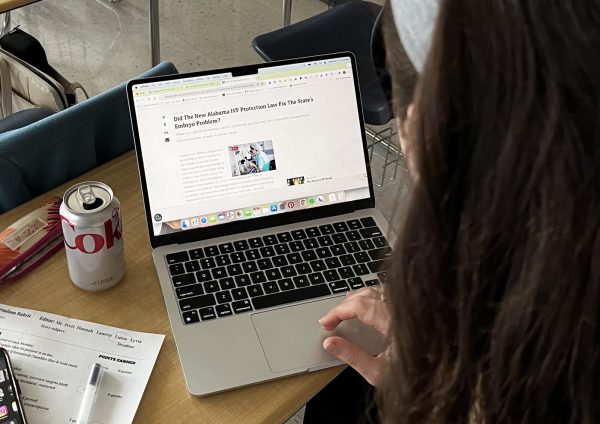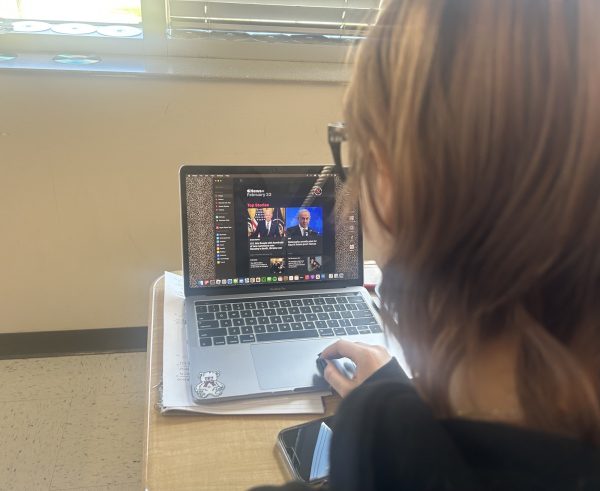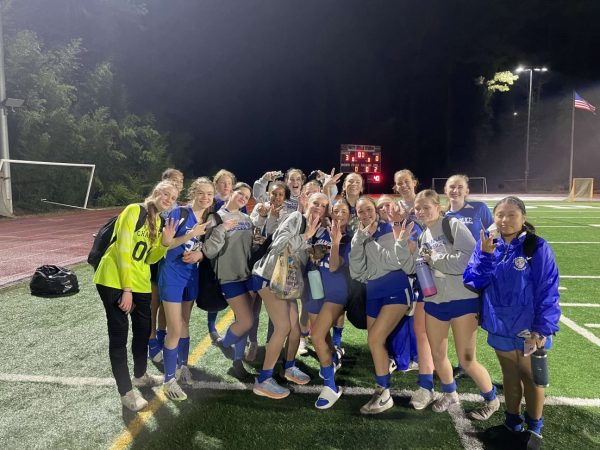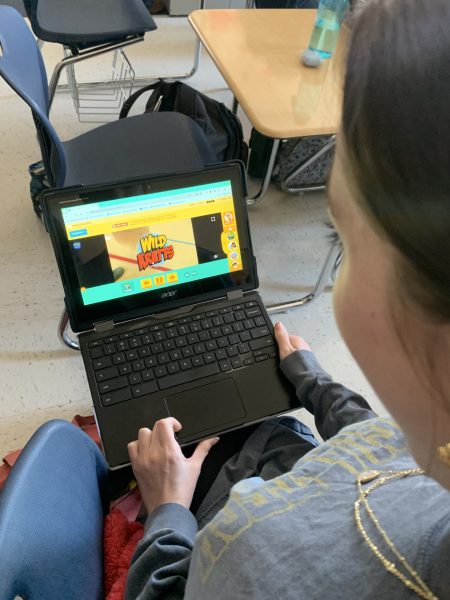Back in School with Backpacks
Photo courtesy of Nicole Arendt.
Students Nicole Arendt and Debbie Kitzler wear their backpacks when checking out the snow during class change.
December 1, 2017
In a school where the hallways are constantly cluttered with students racing to their classes, Chamblee Charter High School has decided to take on a new challenge: backpacks during the school day.
“I’m very happy about it,” junior Ivy Catherine Rogers said. “I think it will be very helpful and very useful because I always have to stop at my locker and that uses up my precious time during the class changes.”
Chamblee teachers were informed of the logistical change through email on November 17, 2017, and the news spread quickly to the students thereafter. Rogers is just one of the students who has embraced the news.
“It’s just such a useful idea in my eyes,” she said. “You would be able to carry things for multiple classes much more easily and have the things you need without having to got to your locker as frequently, especially when we get the chromebooks.”
Rogers remains optimistic even considering the problems that could arise with the backpacks. She has an immense amount of faith that the students will thrive by being able to utilize their bags during the school day.
“I don’t have many fears about it, I think it’s going to be fine as long as people don’t abuse their privilege, by bringing weapons or something,” Rogers said. “Hopefully no one will do that; I think people here are smarter than that.”
Despite her optimism, Rogers understands the threat and why she believes we didn’t have this rule previously at Chamblee.
“I don’t know for sure, really why we didn’t have the rule before,” Rogers said. “I assume it was just so kids wouldn’t bring things they weren’t supposed to to classes.”
Sophomore Elliot Lucey however, has a different theory as to why backpacks were previously off limits in the halls.
“I think that why we couldn’t do this previously was because we have such a large population at Chamblee,” Lucey said. “There could be safety issues surrounding it, maybe.”
Lucey has had experience with using backpacks during the school day and has rarely seen any problems surrounding it at his previous schools.
“I’ve been to schools where we carried our backpacks and it worked really well,” Lucey said. “The thing is, those schools were really small so I don’t know if it will work out here.”
Even though he sees the possible positive outcome for many of the students at Chamblee, Lucey doesn’t wish to partake in this backpack revolution and wants to keep carrying his books from class to class.
“I mean, I guess it’s a good idea,” Lucey said. “We’re not going to be straining our arms with a thousand books anymore, just our poor backbones. I will still just be using my arms though, I’m used to it.”
Lucey especially wants to avoid any conflict or danger surrounding the new usage of backpacks, fearing mostly the lack of space, organization, and how rowdy many students can get in the hallways.
“I think people are going to fall, I feel that’s inevitable,” Lucey said. “If people start shoving the entire contents of their lockers into a bag there will definitely be accidents with people falling down the stairwell.”
While most students are supportive or interested in the upcoming change to school rules, many teachers have a very different stance on the issue, such as AP US History teacher Jennifer Tinnell, who argues of its irrelevance.
“I don’t like the idea at all,” Tinnell said. “It’s cumbersome, it’s a security issue, students don’t need it, it’s an annoyance, and it’s just not necessary.”
After finding out through messaging her fellow teachers, Tinnell quickly became angered by the situation and already disagrees with many of the new policies affecting students.
“I’m mostly very upset the fact that we’ve changed so many policies as far as the students are concerned, including dress code,” Tinnell said. “It’s just not necessary, with the cell phones, backpacks, everything that has occurred this year.”
More specifically with the bookbag situation, Tinnell defends her position, arguing that the backpacks will be less of an aid and more of a distraction for students.
“The backpacks will just be a distraction, like with anything else we allow,” Tinnell said. “It’s just a place to have other stuff because you don’t need all that stuff at one time, and with less stuff around you, you can focus on the task at hand.”
The backpacks, according to Tinnell, are just going to bring about more problems than they solve.
“If kids start bringing more things around to class in their backpacks, there is more room for incidents and stealing and losing things you didn’t even need to bring in the first place,” Tinnell said. “It is a security issue. If you know you can only carry something on your person, then you’re probably less likely to have things you shouldn’t.”
Tinnell plans to take the problem into her own hands in the classroom, setting her own rules as to how the bags will be handled during her class.
“I will tell my students that if you are going to bring your bookbag, you are going to just have to leave it at the front of the room,” Tinnell said. “I’m not going to let them keep it at their side during class, because it’s a fact that students try to hide stuff, and the bookbag is just one more place to hide things that are academically dishonest.”
After Thanksgiving break, the halls were filled with backpacks of every color and size. Not everyone wore their backpack with pride, however. Junior Isabel Bradford held her books just like she had previously.
“I just don’t see the need to rearrange my entire routine when I’m doing just fine without it,” Bradford said. “It’s just another thing to carry.”
Despite the strife of many students and teachers, the backpack rule is now in effect and has not had any issues upon its installment. While so many have such strong opinions, those indifferent, such as Sophomore Nicole Arendt, seem to be the most at peace with the sudden change in policy.
“I think it’s just up to the individual person if they want to use their backpack or not,” Arendt said. “The people carrying backpacks won’t really affect those not, and if people can just do what they want they can use whichever is more effective for them.”

